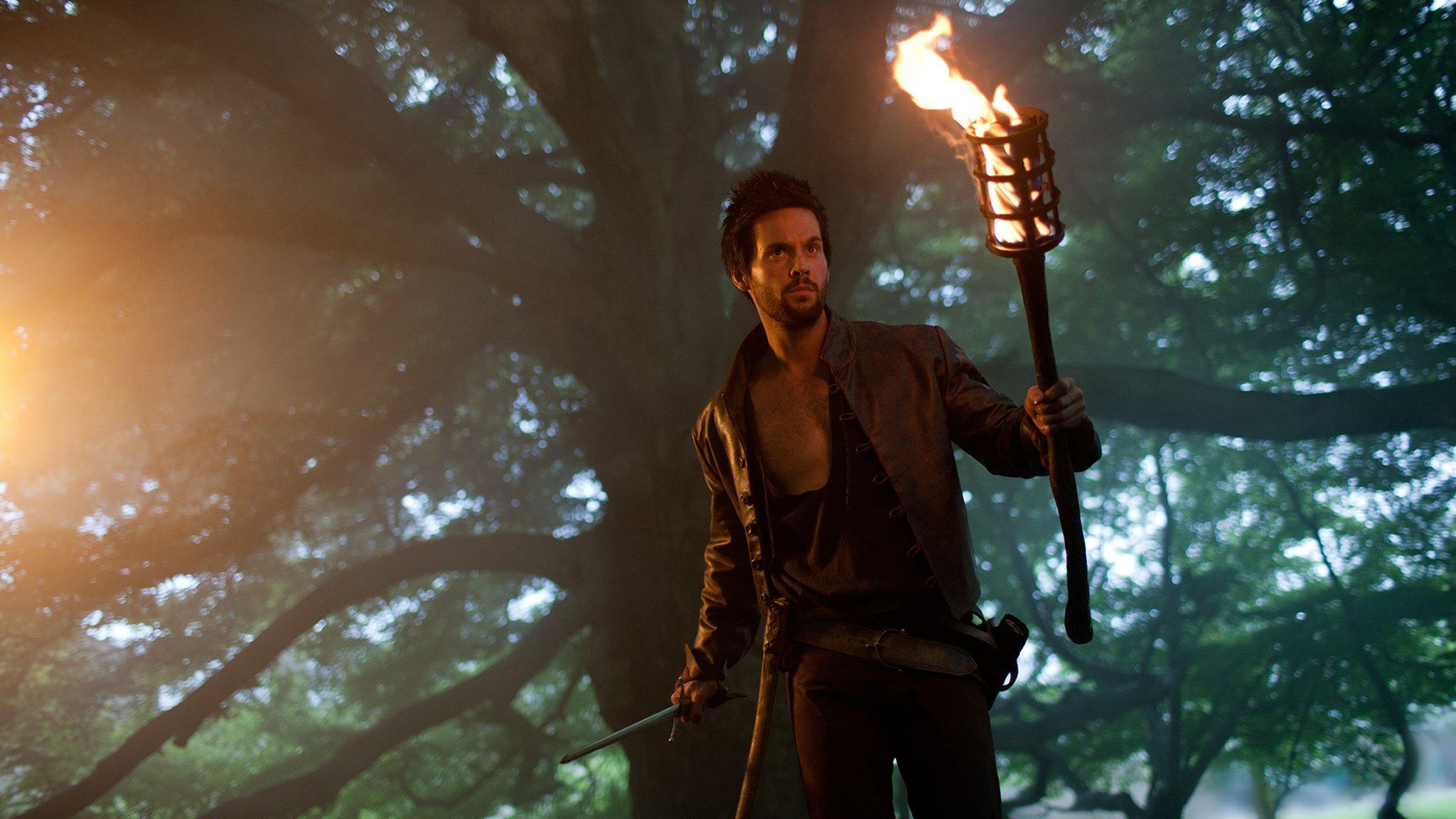The Crow does not fly but Welsh studio space in demand
- Published
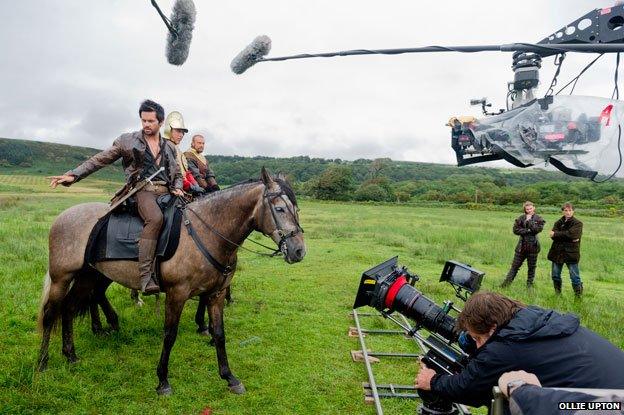
Da Vinci's Demons on location
The revival of Dragon Studios comes as another much-heralded film project flounders.
The Hollywood remake of cult classic The Crow was due to begin filming at Pinewood Wales over the summer.
First Minister Carwyn Jones announced the imminent arrival of the film's cast and crew on a visit to the new Pinewood facility in March.
But financial issues at the film's production company mean the project is now on hold.
It is not unusual for films to be delayed, and The Crow may yet take off, but for now Pinewood's studio on the outskirts of Cardiff stands empty while Valleywood is resurrected.
Sources in the industry warn against further prophecies of doom or talk of "white elephants", with one production supplier insisting Wales' film and TV sector is working "at capacity".
There is also excitement about the launch of Bad Wolf, the new venture from former BBC executives Julie Gardner and Jane Tranter, which plans to begin filming a slate of high-end TV dramas in Wales next year.
Other productions are already planned at Pinewood, while there are rumours that new episodes of the BBC drama Sherlock may be filmed there in the new year.

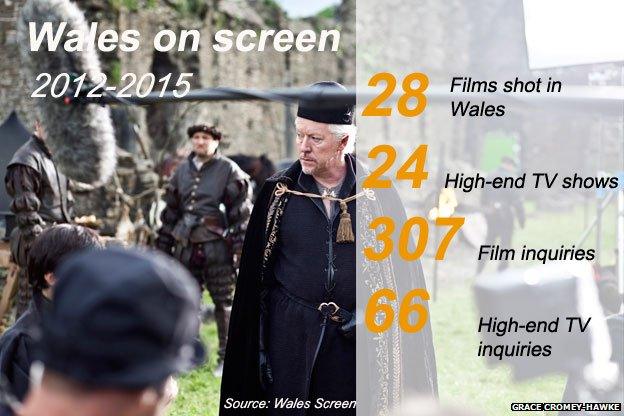
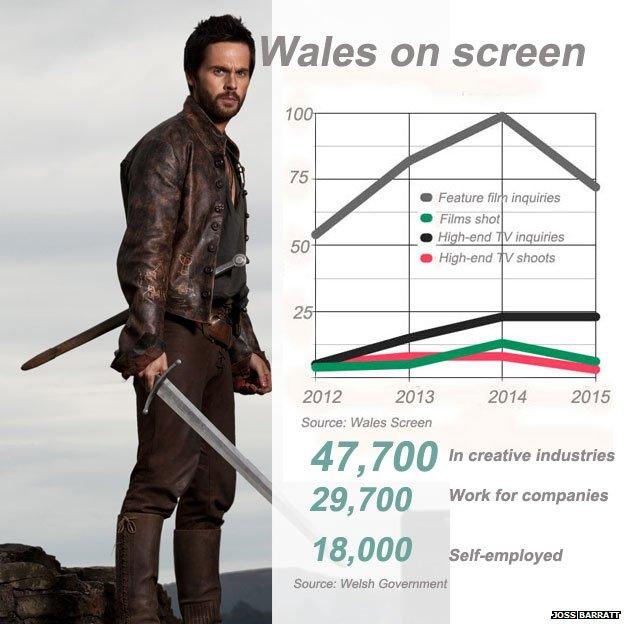
Tom Riley in Da Vinci's Demons

Wales Screen, an arm of the Welsh government which promotes Welsh filming locations and facilities, has seen a near five-fold rise in inquiries about high-end TV dramas since 2012.
Feature films shooting in Wales recently include Guy Ritchie's Knights of the Round Table: King Arthur and Criminal starring Kevin Costner and Tommy Lee Jones.
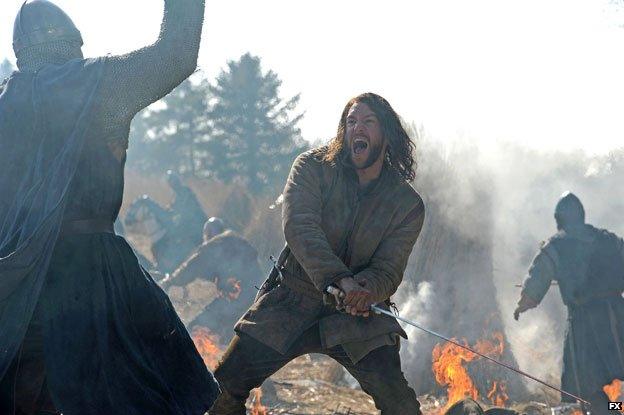
The Bastard Executioner - being filmed at Dragon
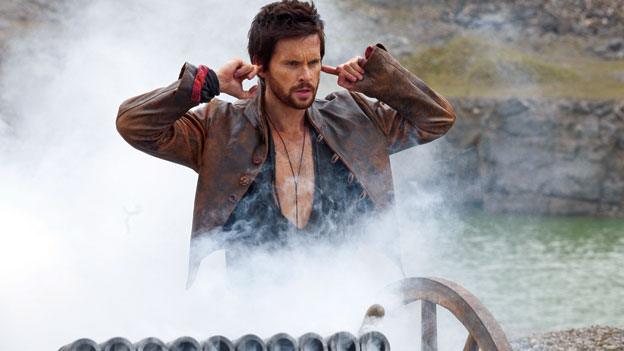
Da Vinci's Demons - filmed in Swansea
TV and film executives are regularly spotted visiting Wales' four main studio facilities - Pinewood, Dragon, the Swansea Bay Studios - which were used to film Da Vinci's Demons - and the Chepstow studio where the BBC's Atlantis was filmed.
Though it is an attractive filming destination, Wales is part of a relentless beauty contest with other parts of the UK, as well as emerging film industries in eastern Europe, to entice the latest productions.
UK tax breaks have seen a general boost in productions, although those marketing Wales think the close proximity of urban streets and dramatic rural landscapes give the country an advantage.
The Welsh government also offers financial support for some productions, including a share of its £30m Media Investment Budget, external for films made through Pinewood Pictures, while it has previously loaned money to the new Bad Wolf company.
By its nature the TV and film production industry relies on relatively short-term, peripatetic projects that bring many of their own staff, though they also draw heavily on local facilities and skilled workers.
The boom in high-end TV drama, and the growth of on-demand services such as Netflix and Amazon Prime Video, means it is an expanding market, potentially worth many millions more to the Welsh economy.
But while Wales has developed the infrastructure to support the increased demand from the international industry, it faces stiff competition from the UK and abroad to attract the new wave of productions.
- Published3 September 2015
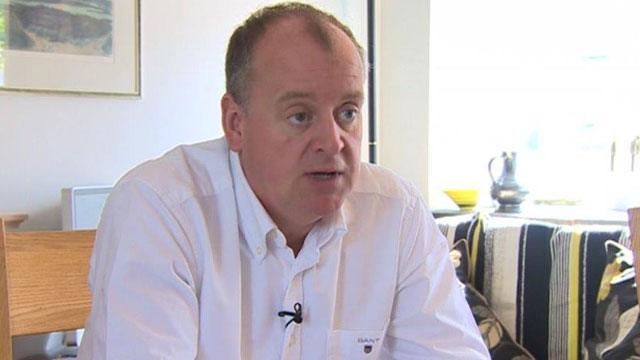
- Published16 March 2015
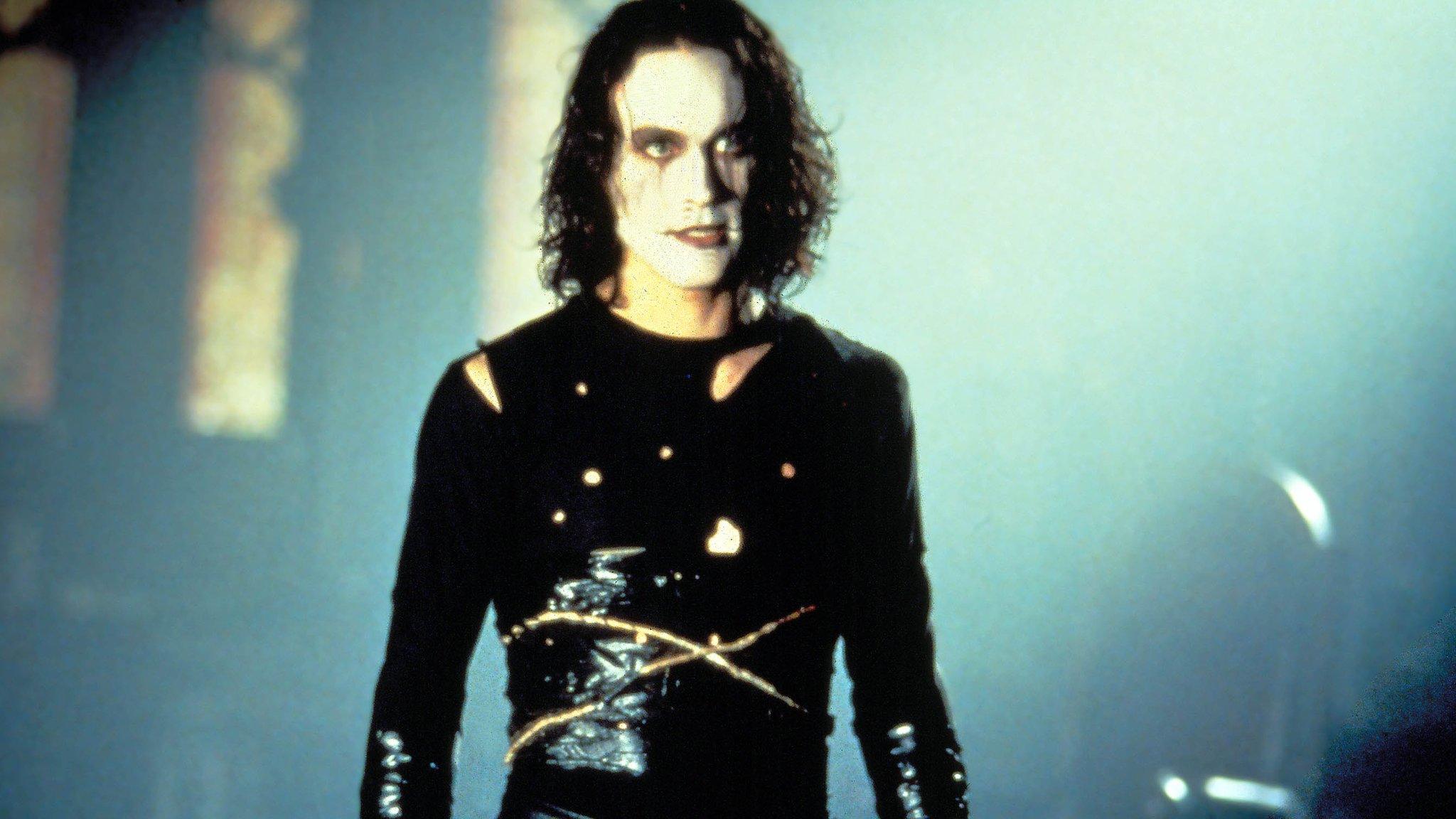
- Published16 March 2015
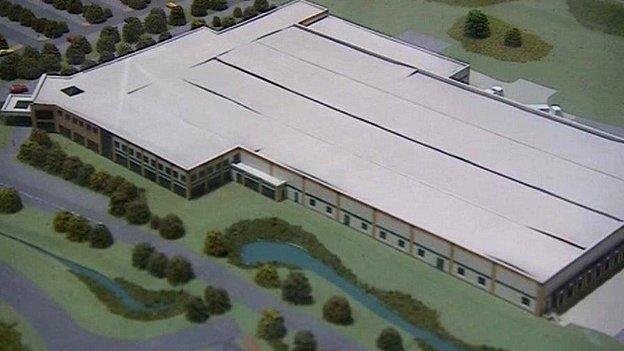
- Published18 April 2013
